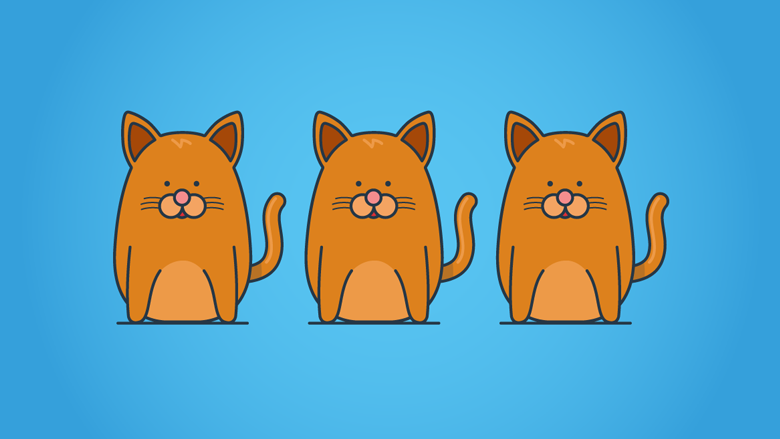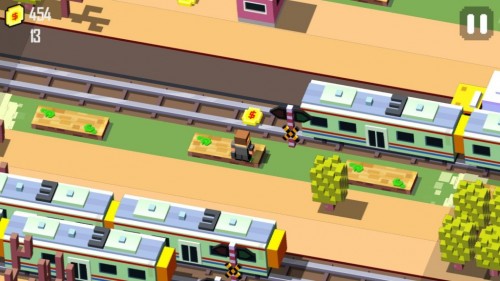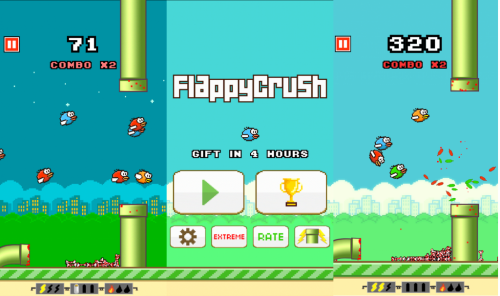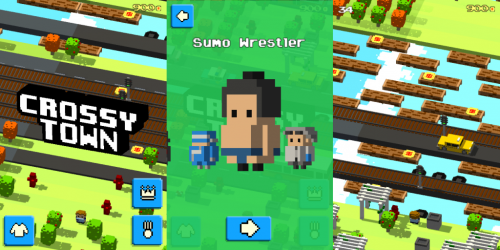Pros and cons of cloning games
From a moral point of view, cloning games is a dubious event. In some countries, plagiarists are also prosecuted by law. Nevertheless, developers around the world still continue to stamp copies of successful projects. The Chartboost resource tried to figure out what the pros and cons of cloning games are.

No need to buy users
The most obvious and significant advantage of cloning is a ready-made user base. Let’s say, on the wave of HYPE around Crossy Road, a player goes to look for an arcade in the store. But instead it finds a million similar minimalistic toys with names like Crossy Abroad, Road Crossing and so on. If the user is not attentive enough, he may well download one of these clones. And if the splagged toy is not the worst in quality, the player may even stay.
Development costs are significantly reduced
Abhishek Rai releases clones under several different game labels – Game Wallet, Playbit and Newb. He is sure that copying games is profitable because it saves time and money for development.
The game Crossy Blocks is the twin sister of the already mentioned Crossy Road. Rai didn’t have to strain his brains to come up with the gameplay and style, thanks to which he assembled the game in 15 days.
Rai did not say exactly how the game is being monetized. But he shared that the main motive for creating clones is profit. According to Rai, his other projects – Candy Quest and Bug Climbing: Hill Climb Race – “bring money just like the rest.”

A serious disadvantage of such a development, according to Rai, is that it is somehow awkward to talk about working with friends. In addition, if buyers still find the original game in the store, then the flow of outraged and unflattering reviews is guaranteed.
But the main problem is that plagiarizing is boring. “No developer wants to copy games, because we are people who like fun, and this is usually very sad,” shares Rai.
The Dark side of cloning
The game Flappy Crush at first glance looks exactly like Flappy Bird. But as soon as you start playing, you realize that the project does not look like Dong Nguyen’s toy at all. Instead of controlling one bird, you steer the whole flock. And the goal is not to lead them through obstacles, but on the contrary, to flatten them against pipes.

Egyptian developer Tarek Mongy took advantage of the success of Flappy Bird to get the first batch of users and downloads. And then the game took on a separate life: the project began to receive positive reviews, and not without the help of word of mouth, it was downloaded 3 million times.
“If the game was of poor quality or simply uninteresting, then it would not have become so successful. The reason why she began to climb up in the search results is that users left positive feedback,” says Mongi.
But despite this, the profile media did not write about the game. Mongi is sure that the game is being passed over in silence simply because the label “clone” has stuck to it.
The irony, Mongi shares, is that his original project – Stars Savior – went completely unnoticed.
Clones often don’t pay off
Success in the field of plagiarism is not for everyone. The Brazilian team of three people Niobium spent a month to create another clone of Crossy Road – Crossy Town. But the reviews were terrible, and even after the developers spent money on acquiring users, the situation did not improve.
“With the help of a Chinese publisher, we managed to collect 500 thousand installations, but in the end, the players still did not delete the game or did not return a second time,” says Guilherme Nunes Barbosa, a developer from Niobium.
The project earned $50 on advertising in the first month. But not a single user has bought anything. “It can be argued that the project failed,” Nunes shares.

Sometimes plagiarism pays off, they sum up in Chartboost. But stupidly copying successful mechanics is still not worth it. It’s always better to try to add something from yourself to the game.
Source: Chartboost
There is news – write to news@app2top.ru